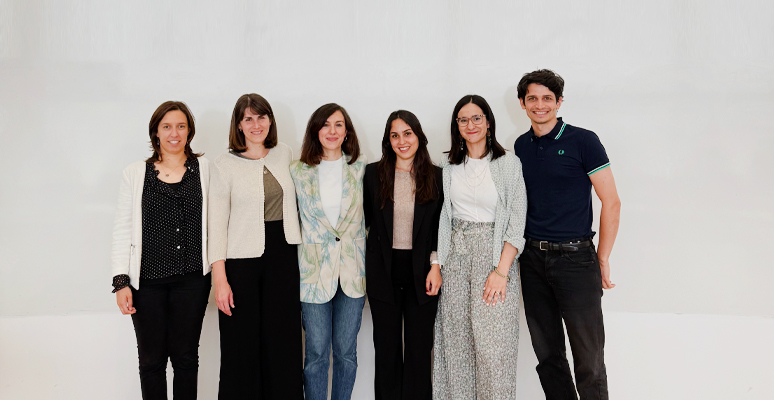
- Start Date
- Duration
- Format
- Language
- 17 Nov 2024
- 3 days
- Class
- Italian
On September 8, 2025, the Master in Management for Healthcare (MiMS) at SDA Bocconi celebrated the concluding day of field research. This marked the moment when students presented the results of their applied research projects after months of close collaboration with companies, institutions and key players in the healthcare and pharmaceutical sectors. The event served as a vital crossroads between education, innovation and the business ecosystem, creating an opportunity for meaningful dialogue with clients and faculty that extended far beyond academic evaluation.
As Roberta Montanelli, Program Coordinator, emphasized, “field research creates a vital link between learning and experience. Our students don’t limit themselves to studying cases or theories: they tackle real challenges, develop concrete solutions and generate value for organizations. This experience develops healthcare professionals who can make an immediate impact.”
The work clearly demonstrated the students’ ability to combine analytical rigor with forward-thinking vision. Despite operating across diverse areas – corporate welfare, territorial healthcare, service governance, access to innovative drugs, prevention and new European regulations – students identified common orientations that outline the system’s future trajectory. Prevention emerged as a transversal paradigm, viewed as strategic investment rather than cost, whether applied to cardiovascular health, sports medicine, or prophylaxis strategies. At the same time, data-driven management also proved essential: measuring processes and outcomes through indicators and monitoring systems is now crucial for making rapid, evidence-based decisions.
Digitalization emerged as another shared characteristic, serving as a critical means of achieving proximity. Telemedicine, platforms, online services and remote care models have become tools that make healthcare more accessible, rapid and inclusive. Economic sustainability is now intertwined with equity of access: every innovation, the work highlighted, must address technical feasibility alongside its impact on healthcare system budgets and the capacity to guarantee universally available services. Finally, the work reinforced awareness that future healthcare requires multi-stakeholder collaborations: companies, institutions, professionals and communities must operate as networks to generate value.
If there’s a common thread that unites these experiences, it’s the commitment to producing concrete, measurable value that translates into clinical benefits for patients, sustainability for systems and social impact for communities. As Francesca Lecci, Program Director, recalled, “these works remind us that innovation is never an end in itself. It’s meaningful when it translates into measurable benefits for those who use it. Our students have learned to ask themselves the most difficult and most necessary question: what value are we generating and for whom?”
The value of field research extends beyond achieved results to encompass the journey that students have taken: learning to manage complex projects, engaging with diverse stakeholders, balancing rigorous analysis and creativity, negotiating in conditions of uncertainty and making decisions with incomplete data. As Luigi Preti observed, “these experiences teach students to unite method with vision. Students have worked like true professionals, experiencing what it means to face uncertainty, negotiate with stakeholders and make decisions with incomplete data. These are skills that no manual alone can convey.”
The day confirmed the role of the MiMS Master as a meeting platform between academia and the healthcare system. Partner companies and institutions, which this year include IQVIA, Gilead, BBraun, Intexo, Aizoi, ASST Spedali Civili di Brescia and Fondazione Don Carlo Gnocchi, were able to observe innovative ideas and solutions while receiving concrete input for their operations. Students experienced a realistic, challenging context that prepared them for leadership positions. This fertile dialogue supports the School’s broader mission: contributing to the renewal of the Italian and European healthcare system by training professionals who combine competence, responsibility and innovation.
The field research presentations demonstrated that education becomes an engine of change when rooted in reality and connected to territorial and corporate needs. “These were not simple academic exercises,” concluded Francesca Lecci, “but projects that brought evidence, solutions and concrete proposals, opening viable paths for the future of healthcare.”
SDA Bocconi School of Management


Doing a comprehensive strategic exercise as the executive leadership team of a hospital to test and strengthen managerial and organizational skills.

The Program aims to provide basic knowledge of health technology assessment and the main techniques of economic evaluation in health.

